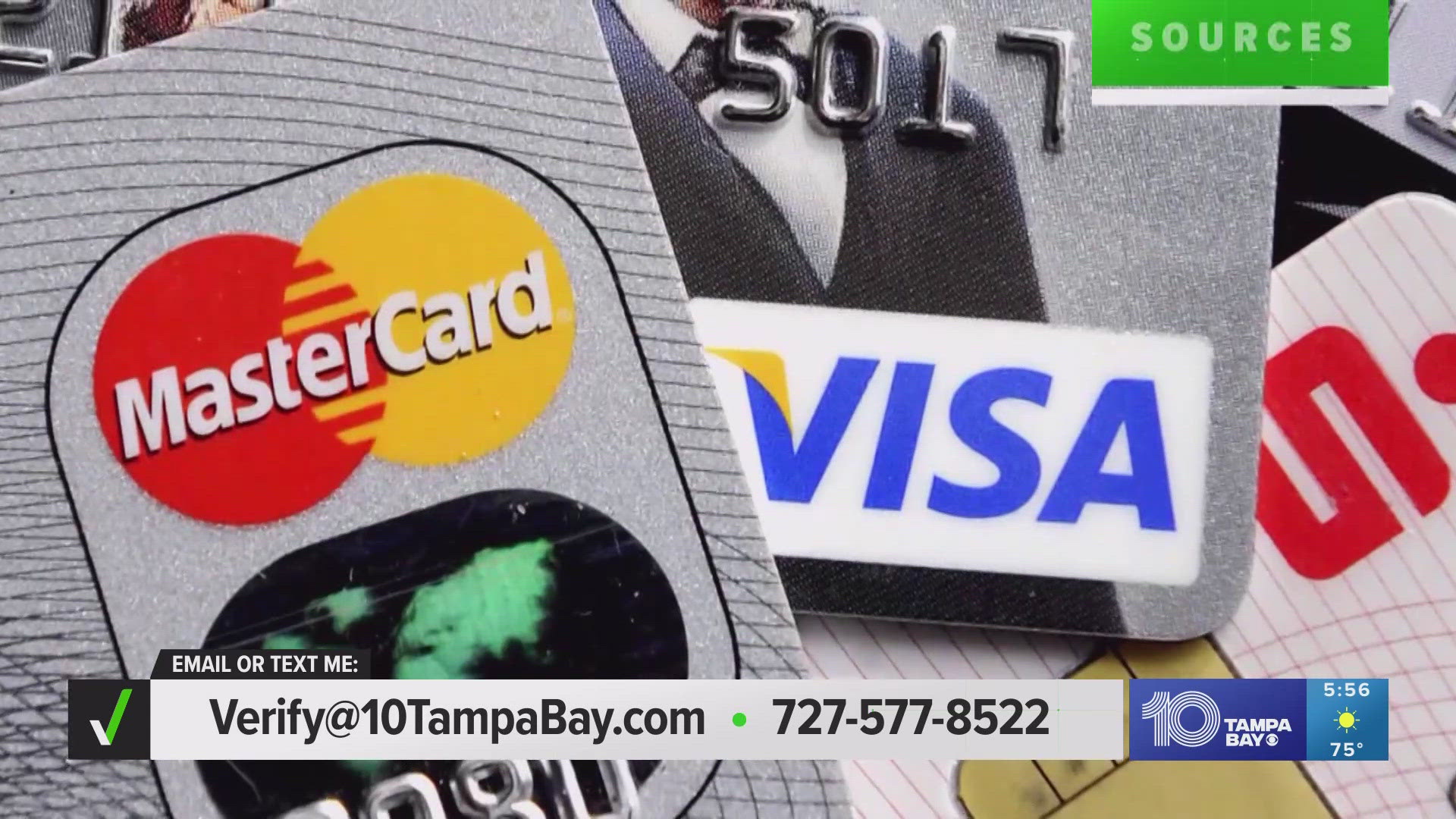ST. PETERSBURG, Fla. — Credit cards have become a convenient – and common – way for many to pay for goods and services.
But did you know that every time you swipe or tap your card at a business they are then charged a fee by the credit card company to process the payment? This is called an interchange fee or "swipe fee."
These fees often help fund credit card rewards programs that offer airline points, for example, to consumers, according to NerdWallet.
Some businesses then opt to pass that interchange fee onto you in the form of a surcharge.
Elaine S. in North Port, who used to own a small business, asked VERIFY how Florida merchants are allowed to do this because she found a state law prohibiting surcharges.
THE QUESTION
Does Florida law ban credit card surcharges for "swipe fees?"
THE SOURCES
- Florida statute
- Office of Florida Attorney General Ashely Moody
- NerdWallet
- Bankrate
- Barakat & Bossa law firm
- Court documents Dana’s Railroad Supply LLC v. Attorney General Florida
THE ANSWER
Yes, Florida law does ban credit card surcharges for "swipe fees," but the law is not enforceable.
WHAT WE FOUND
Florida statute reads that a seller cannot impose a surcharge on a buyer for using a credit card instead of another form of payment if the business accepts credit cards.
The law defines surcharge as “any additional amount imposed at the time of sale or lease transaction by the seller or lessor that increases the charge to the buyer or lessee for the privilege of using a credit card to make payment.”
But that law is not enforceable.
Florida’s ban was held unconstitutional by federal courts in 2015, according to the Office of Florida Attorney General Ashley Moody. Merchants in Florida can add a surcharge to credit card purchases.
The 11th U.S. Circuit Court of Appeals found the statute violated a business’ First Amendment right to freedom of speech by not allowing surcharges for credit-card purchases but allowing businesses to offer discounts to customers who pay with cash, according to the Florida law firm Barakat and Bossa.
“The case hinged upon whether the law regulated speech or conduct,” reads a post on the firm’s website explaining the decision. “[The court] found that technically speaking, ‘surcharges and discounts are nothing more than two sides of the same coin; a surcharge is a negative discount, and a discount is a negative surcharge.’”
The challenge was brought by several businesses that had received cease-and-desist letters from the states for alleged violations, including Dana’s Railroad Supply in Spring Hill. The U.S. Supreme Court declined a request by then-Attorney General Pam Bondi's office to take up the dispute after the federal appeals court decision.
Surcharges are legal as long as businesses that use them follow specific protocols:
- Retailers must register the surcharge
- The surcharge must be disclosed to customers and reflected on the receipt
- Businesses prohibiting from charging more than processing cost
- Most credit card companies prohibit surcharges on debit card transactions
Interchange, or "swipe fees," are charged on the entire amount of the transaction, including the tax. Recent legislative efforts in Florida to prohibit the fee from applying to the taxable portion of the transaction have failed. Some small business owners argue it's a tax on a tax.

